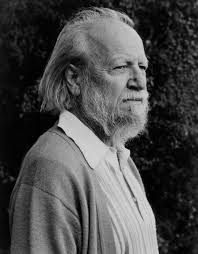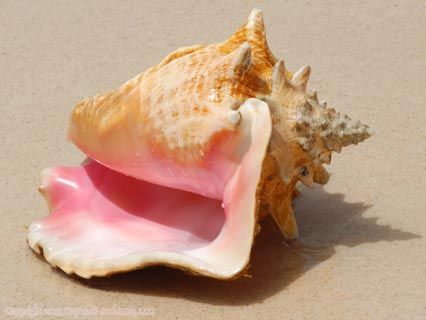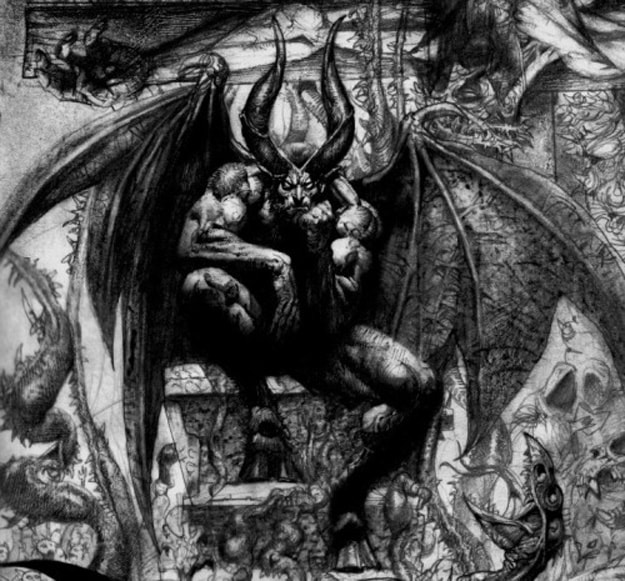Archetypes in Lord of the Flies (1954)
Essay Prompts for Chapters 1-3
1) Let's tackle the idea of exposition first. Writers often deliberately deploy literary elements in Chapter One as a way of establishing the tone, mood, and setting of their work. In addition, they tend to introduce main characters early on and foreshadow the nature of the conflict between the protagonist and the antagonist. This is why we need to pay close attention to the author's diction and description presented in Chapter One. Practicing the skills of "close reading" will help you better appreciate the complex aspects of the story as it unfolds. Here is our closing reading activity: Single out some details and diction* Golding uses in depicting this unidentified, unmanned island somewhere in the tropics. According to the writer's diction and details , is it close to an earthly paradise or is it a strangely ominous place?
(By diction, we mean the author's deliberate usage of descriptive words.)
Characterization activity:
2) Focus on the ways in which Golding depicts Ralph, Piggy, and Jack. Zoom in on one of these characters and write a character analysis of your chosen character. What are the positive and negative character traits your chosen character exhibits?
3) The partnership and rapport (bond) between Ralph and Jack seem to deteriorate soon after the election, and their mutual animosity (hostility) becomes quite palpable throughout Chapter Three. Now, Jack and Ralph continue to challenge each other’s authority. Why do you think William Golding pitted these two boys against each other? What symbolic value or ideal do you think each of these boys represents?
Vocabulary Might: lord_of_the_flies_1-3.docx
1) Let's tackle the idea of exposition first. Writers often deliberately deploy literary elements in Chapter One as a way of establishing the tone, mood, and setting of their work. In addition, they tend to introduce main characters early on and foreshadow the nature of the conflict between the protagonist and the antagonist. This is why we need to pay close attention to the author's diction and description presented in Chapter One. Practicing the skills of "close reading" will help you better appreciate the complex aspects of the story as it unfolds. Here is our closing reading activity: Single out some details and diction* Golding uses in depicting this unidentified, unmanned island somewhere in the tropics. According to the writer's diction and details , is it close to an earthly paradise or is it a strangely ominous place?
(By diction, we mean the author's deliberate usage of descriptive words.)
Characterization activity:
2) Focus on the ways in which Golding depicts Ralph, Piggy, and Jack. Zoom in on one of these characters and write a character analysis of your chosen character. What are the positive and negative character traits your chosen character exhibits?
3) The partnership and rapport (bond) between Ralph and Jack seem to deteriorate soon after the election, and their mutual animosity (hostility) becomes quite palpable throughout Chapter Three. Now, Jack and Ralph continue to challenge each other’s authority. Why do you think William Golding pitted these two boys against each other? What symbolic value or ideal do you think each of these boys represents?
Vocabulary Might: lord_of_the_flies_1-3.docx
Chapters 4-6 Essay Prompts
Chapter 4: “Painted Faces and Long Hair”
Identify two details or incidents portrayed in this chapter that signal the boys’ decline toward savagery from civilization.
Chapter 5: “Beast from Water”
When Ralph asks “Who thinks there may be ghosts?” (100), most boys raise their hands and neither Simon’s skepticism nor Piggy’s faith in science can dispel the prevalence of fear amongst the boys. Why does Jack insinuate the presence of the Beast and promises to protect the littluns from it? Consider how darkness and the fear of the unknown might affect human behaviors.
Chapter 6: “Beast from Air”
There are many mentions of the Beast throughout this novel. What do you think Golding means by the “Beast”?
Vocabulary Might: lord_of_the_flies_vocabulary_4-6.docx
|
|
|
|
Essay Prompts for Chapters 7-9
1) In Chapter 9, “A View to a Death," a tragic case of a mistaken identity brings death to the island; however, the diction and tone of this novel have been anticipating a certain catastrophe even in an earlier chapter, “Gift for the Darkness.” Illustrate how the weather foreshadows what happens to Simon.
2) Now that we know what the boys mistook for the beast is in fact a dead parachuter, it becomes clear that the beast in this novel is not an external force or a formidable antagonist but something rather internal. What do you think the beast in this novel signifies?
2) Jack and the choir boys quickly slither into savagery once they start painting their faces and singing hunting chants. In addition, Jack’s belief in the beast and need to appease it seem to come naturally to him. Do you believe humans, when left in their own devices, are inclined toward common good or toward violent survival instincts?
Vocabulary Might: lord_of_the_flies_vocab_7-9.docx
1) In Chapter 9, “A View to a Death," a tragic case of a mistaken identity brings death to the island; however, the diction and tone of this novel have been anticipating a certain catastrophe even in an earlier chapter, “Gift for the Darkness.” Illustrate how the weather foreshadows what happens to Simon.
2) Now that we know what the boys mistook for the beast is in fact a dead parachuter, it becomes clear that the beast in this novel is not an external force or a formidable antagonist but something rather internal. What do you think the beast in this novel signifies?
2) Jack and the choir boys quickly slither into savagery once they start painting their faces and singing hunting chants. In addition, Jack’s belief in the beast and need to appease it seem to come naturally to him. Do you believe humans, when left in their own devices, are inclined toward common good or toward violent survival instincts?
Vocabulary Might: lord_of_the_flies_vocab_7-9.docx
Chapters 10-12: "The Shell and the Glasses"; "Castle Rock"; "Cry of the Hunters"
1) When Piggy falls to his death, the conch is also shattered into smithereens. Discuss the symbolic relationship between Piggy and the conch.
Fire has been a very important symbol throughout this novel. Why did Jack start the fire that ends up scorching most of the surface area of the island? What is the effect this conflagration produces?
2) In Chapter 12, Ralph comes across “the skull that gleamed as white as ever the conch had done” (214). In what ways are the conch and the lord of the flies (skeletal remains of the decapitated pig’s head) similar and different?
3) In the final chapter, the collapse of the civilizing presence seems to be quite inescapable when Ralph is hunted and smoked out to be killed. How does Golding bring about a resolution to this impasse? And do you agree with the ending?
Vocabulary Might: vocabulary_might_lord_of_the_flies_chapters_10-12.docx
1) When Piggy falls to his death, the conch is also shattered into smithereens. Discuss the symbolic relationship between Piggy and the conch.
Fire has been a very important symbol throughout this novel. Why did Jack start the fire that ends up scorching most of the surface area of the island? What is the effect this conflagration produces?
2) In Chapter 12, Ralph comes across “the skull that gleamed as white as ever the conch had done” (214). In what ways are the conch and the lord of the flies (skeletal remains of the decapitated pig’s head) similar and different?
3) In the final chapter, the collapse of the civilizing presence seems to be quite inescapable when Ralph is hunted and smoked out to be killed. How does Golding bring about a resolution to this impasse? And do you agree with the ending?
Vocabulary Might: vocabulary_might_lord_of_the_flies_chapters_10-12.docx


